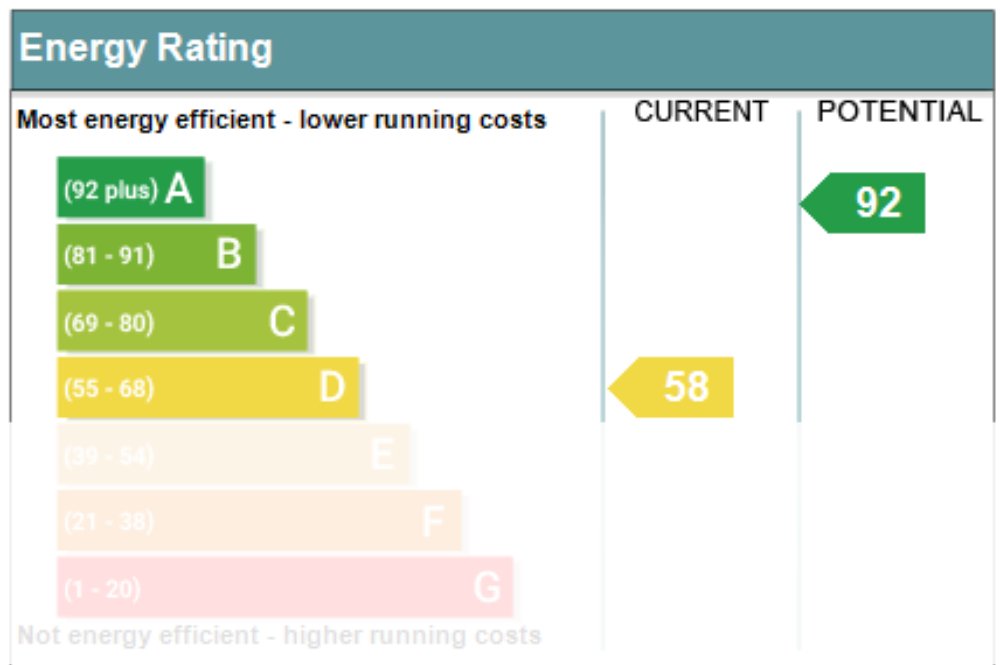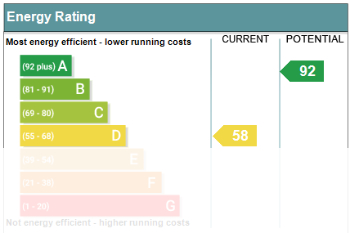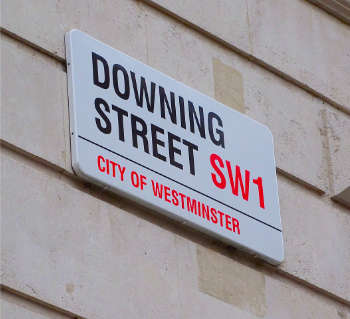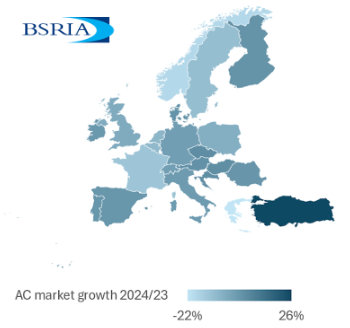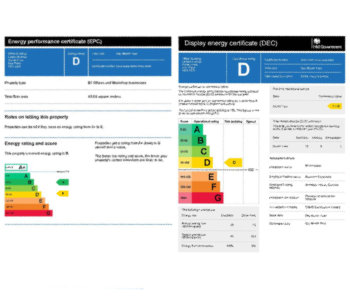Updating MEES for privately rented homes in England and Wales by 2030
Contents |
[edit] Background
In 2020, under the Conservative government, the consultation 'Improving the energy performance of privately rented homes' was published. Following this consultation, 'Reforms to the Energy Performance of Buildings regime' was published in December 2024 by the Labour government, seeking views on the reform of the Energy Performance of Buildings (EPB) framework for England and Wales (Scotland and Northern Ireland being devolved matters). It looked primarily at the basis, building types, and validity periods of Energy Performance Certificates (EPCs) and Display Energy Certificates (DECs) but did not formally have a bearing on the minimum energy efficiency standards (MEES) that were required to be achieved using these certification tools. See the article on the EPC consultation in the context of changes to the NCM
[edit] Current MEES consultation
Now in February 2025, the Labour government has published its consultation regarding the minimum energy efficiency standards (MEES) for privately rented homes in England and Wales by 2030. 'Improving the energy performance of privately rented homes: 2025 update' The consultation ends in May 2025. The consultation seeks views on the government’s proposal to amend the Energy Efficiency (Private Rented Property) (England and Wales) Regulations 2015 (referred to as ‘the PRS Regulations’) as well as on changes to the Energy Act 2011, the primary legislation that gives the government the powers to amend the Private Rental Sector (PRS) Regulations.
The full consultation and how to respond can be found here, below is a brief summary of some of the key points.
[edit] Reasoning and timeline
The government has indicated that 'up to half a million households could be lifted out of fuel poverty by 2030 in a major boost to standards in the private rental sector' with 'tenants in poor energy performance properties to be hundreds of pounds better off as part of the government’s Plan for Change' with 'energy-saving measures to be installed in properties to cut the cost of bills and protect the pounds in renters’ pockets…which could save private renters £240 per year on average on their energy bills, with all private landlords in England and Wales mandated to meet higher energy performance ratings in their properties by 2030.' 'While 48% of private rented homes in England are already Energy Performance Certificate C or above, ministers now want to ensure this good practice is extended to all properties in the sector, making sure landlords are not undercut, while protecting tenants.'
The proposals look at requiring all private landlords to meet a higher standard of Energy Performance Certificate (EPC) C or equivalent in their properties as of 2030. This is an increase up from the current minimum level of EPC E, which has been required since 2018, when the minimum energy efficiency standards (MEES) in the private rented sector (PRS) were introduced. The proposed timeline for the implementation of the EPC reform and higher MEES for the PRS is:
- 2025: The government responds to the consultation on ‘Reforms to the Energy Performance of Buildings Regime,’ consults on a proposed Home Energy Model (HEM) methodology for producing new EPC metrics, and responds to the consultation on ‘Improving the energy performance of privately rented homes in England and Wales.’
- 2026: Final HEM methodology for EPC metrics is published, and preparation to introduce new EPCs, including' the delivery of EPC software and the training of energy assessors. New EPCs, with new metrics, are available for landlords to commission (existing EPCs with the EER are no longer available). New minimum standards against new metrics for privately rented homes were confirmed along with secondary legislation to raise MEES and updated landlord guidance on compliance.
- 2028: New tenancies in the domestic PRS are required to meet the higher standard.
- 2030: All tenancies in the domestic PRS are required to meet the higher standard.
[edit] Key consultation points
Revising the EPC regulations for privately rented homes, will shift from the current cost-based Energy Efficiency Rating (EER) to a broader set of four key metrics: fabric performance, heating system efficiency, smart readiness, and energy cost. Metrics aiming to improve energy efficiency, reduce fuel poverty, and support decarbonisation efforts.
- Fabric performance assesses insulation and structural efficiency, with recommended insulation methods.
- Heating system efficiency evaluates emissions and performance, promoting low-carbon options such as heat pumps.
- Smart readiness looks at optimising energy use, encouraging technologies like solar panels and smart meters.
- Energy cost similar to the existing EER, assessing modelled energy expenses per square meter.
Relying on energy cost as a primary metric has drawbacks, with the high cost of electricity potentially discouraging the use of heat pumps, plus outdated price assumptions can impact EPC rating accuracy. The combined new metrics, rather than cost-based assessments help address these concern. Aiming to improve building efficiency while ensuring regulatory stability and fairness. The government seeks feedback on the proposed dual-metric and alternative approaches.
The government plans to introduce new EPC metrics using the Home Energy Model (HEM), with a consultation on its methodology in 2025. The aim is to refine energy performance assessments and set clear compliance grades for Minimum Energy Efficiency Standards (MEES) in privately rented homes.
The approach would require landlords to first meet a fabric performance standard—investing in insulation, double glazing, and draught-proofing, then choosing to comply with either the smart readiness or heating system metric. Smart readiness improvements include smart meters, solar panels, and energy storage, enhancing energy flexibility. Heating system improvements focus on low-carbon heating solutions like heat pumps, efficient radiators, and better controls.
Landlords must invest up to £6,100–£6,800 per property to meet the standards, as many homes already meet the fabric performance metric, additional investment would be only required in smart or heating upgrades. Exemptions would continue to exist for properties where fabric improvements may not be possible. The fabric-first approach helps ensure consistent thermal performance across the rental sector, tackling fuel poverty and making homes more energy-efficient and affordable. The government is seeking feedback on these proposals before finalising MEES requirements.
Consideration is being given to alternative ways of setting the Minimum Energy Efficiency Standards (MEES) using combinations of the new EPC metrics. The first alternative being Dual Metrics of Equal Weighting, landlords meet standards set against two of the three proposed metrics, without prioritising one over the other. For example: Variations such as fabric performance and smart readiness so not requiring heating system changes but improving efficiency. Fabric performance and heating system, ensures thermal efficiency and supports heat decarbonisation. Smart Readiness and Heating System, helping decarbonise heat while offsetting costs through smart energy use. The second alternative looks at an overarching standard across all three metrics, either distributing investment evenly or focussing on one or two metrics. The government seeks feedback on these alternative approaches or other suggestions.
Initially a £10,000 cost cap was proposed in 2020 to improve rental properties to EPC level C, estimating an average landlord investment of £4,700 per property. However, to address fuel poverty and balance costs for landlords and tenants, the 2025 proposal suggests raising the cap to £15,000 (inclusive of VAT) while ensuring it does not automatically rise with inflation. So under current Regulations: PRS landlords must invest up to £3,500 to achieve EPC E, with the new proposal: looking to up to £15,000 to meet a higher standard, improving more properties and benefiting more tenants. The average investment being between £6,100 and £6,800 per property (based on 2024 prices). By 2028, new tenancies must comply and by 2030, all tenancies must comply. It is proposed to extend the ‘All relevant improvements made’ exemption from 5 to 10 years to balance reducing fuel poverty with fairness for landlords investing up to £15,000 per property. Feedback is sought on the proposed £15,000 cap, alternative caps, the timeline and the exemption period extension.
The UK government has proposed raising the Minimum Energy Efficiency Standards (MEES) for privately rented homes to an Energy Performance Certificate (EPC) rating of 'C' by 2030. This phased approach aims to minimise disruption for landlords and tenants while aligning with carbon reduction goals. Under the proposal, new tenancies would need to meet the higher standard by 2028, with all tenancies required to comply by 2030.
These measures are part of the government's broader strategy to improve energy efficiency in the private rented sector, aiming to reduce carbon emissions and alleviate fuel poverty. Landlords are encouraged to assess their properties and plan for necessary upgrades to meet the upcoming standards. To support landlords, an affordability exemption is proposed, potentially reducing the required investment to £10,000 per property via one of a number of proposals:
- Rent Level-Based Approach: a lower cost cap where rent is lower balance affordability and improvements.
- Broad Rental Market Area (BRMA) Approach: Cost caps based on size and location, with data from VOA.
- Council Tax Band-Based Approach: Eligibility based council tax band, simpler for landlords and LAs.
- Local Authority Area-Based Approach: Using average rent to determine eligibility, considering local market.
Consideration is also being given to not implementing an affordability exemption, which could leave the least energy-efficient homes without necessary upgrades, emphasising importance of simplicity and fairness in any chosen approach.
The Levelling Up and Regeneration Act 2023 defined short-term rental properties as dwellings provided to guests for accommodation other than their principal residence, in exchange for payment, as a trade or business. Short-term lets are not required to have an EPC if the occupant is not responsible for the property's energy costs. This exemption means that many short-term lets do not need to comply with the Energy Performance of Buildings regulations. MHCLG is consulting on removing this allowance, bringing short-term lets into the scope of the PRS Regulations, aiming for consistent energy efficiency standards across similar property types. It aims to prevent landlords from converting properties from long-term rentals to short-term to evade energy efficiency requirements, thereby protecting tenants in areas with housing shortages.
A range of exemptions available to landlords are being consulted upon, such as affordability Exemptions (the cost cap of £15,000 and potential reduction to £10,000 for certain properties). Smart Meter Installation encouraged or requiried in privately rented properties. Short-Term Lets, included or not. .
The Private Rented Sector (PRS) Regulations set minimum energy efficiency standards for rental properties, with specific exemptions to accommodate various circumstances. These exemptions are designed to ensure fairness for both tenants and landlords.
- 'All relevant improvements made' exemption when recommended energy efficiency improvements have been implemented up to the cost cap, but the property still doesn't meet the required standard. The proposal increases the cost cap from £3,500 to £15,000 in the upcoming regulations.
- 'High Cost' Exemption: For where the cost of installing even the most affordable recommended measure exceeds the cost cap. This exemption is also subject to the proposed increase in the cost cap to £15,000.
- Wall Insulation Exemption: If the only recommended improvements are wall insulation and expert advice indicates these would negatively impact the property's structure, this exemption applies. However, landlords are still required to implement other recommended measures to meet the minimum standard.
- Third-Party Consent Exemption: When necessary consents (from tenants, superior landlords, mortgagees, freeholders, or planning departments) cannot be obtained despite efforts. Its duration is either five years or, in cases of tenant consent issues, until the current tenancy ends or is reassigned.
- Property Devaluation Exemption: If energy efficiency improvements would devalue the property by more than 5%, supported by an independent surveyor's report, this exemption can be registered.
The Energy Performance of Buildings Regulations require landlords to obtain an Energy Performance Certificate (EPC) before listing a property for rent and to provide this EPC to potential tenants. In the 2020 consultation, the government proposed that letting agents and online property platforms should only advertise and let properties compliant with the Minimum Energy Efficiency Standards (MEES). However, the government's current position is to keep this requirement under review, pending the development of a Private Rented Sector (PRS) database in England, which would enable agents and platforms to easily verify property compliance. In Wales, Rent Smart Wales already holds data on PRS properties' EPC ratings.
Existing EPCs: Should properties with an EPC rating of C on EPC before 2026 be recognised as compliant with the future standard until their current EPC expires or is replaced what are alternative options. Should landlords be required to commission a new EPC before taking action to comply with higher MEES? Should EPC costs be included within the cost cap? Should post-improvement EPCs be required and should cost of the post-improvement EPCs be in the cost cap?
[edit]
Current support for landlords lie in a zero-rate of VAT on energy saving measures, such as insulation, and low-carbon heating, until March 2027. The Warm Homes Plan will also support investment in insulation, low carbon heating and other home improvements to cut bills. Further details about support for landlords in the future will also be considered as part of the Plan. There are also a number of policy changes that inter-relate with the planned changes which include:
- The Renters’ Rights Bill includes applying the Decent Homes Standard to a new PRS database, extending Awaab’s Law to privately rented homes and a new PRS Landlord Ombudsman.
- The Decent Homes Standard which has been applied to social homes since 2002 maybe extended the PRS.
- The Welsh Housing Quality Standard (WHQS) introduced in 2002, revised in 2023 for April 2024 roll-out with new elements such as a Whole Stock Assessment, Target Energy Pathways and EPC level C by 2030.
- MEES to be applied to the Social Rented Sector as part of the Decent Homes Standard.
- Future Building Standards aim to reduce significant emissions and increase efficiency increases for net zero targets, ensuring that consumers get the best possible balance of efficiency, affordability and comfort
- A new Fuel Poverty Strategy to set out government’s approach to meeting the 2030 target in England.
[edit] Related articles on Designing Buildings
- Are Energy Performance Certificates accurate?.
- Building energy models.
- Display energy certificate DEC.
- Future Homes Standard.
- How are EPCs produced?.
- Minimum energy efficiency standard (MEES).
- Simplified Building Energy Model SBEM.
- Standard Assessment Procedure SAP.
- The EPC consultation in the context of changes to the NCM
- The Home Energy Model and Future Homes Standard assessment wrapper.
- What is the new Home Energy Model or HEM?
[edit] External links
https://housingstandardisation.com/systems/housing-standards-manuals-and-acts-in-england
https://www.gov.uk/government/news/government-unveils-plans-for-next-generation-of-new-towns
Featured articles and news
Embodied Carbon in the Built Environment
A practical guide for built environment professionals.
Updating the minimum energy efficiency standards
Background and key points to the current consultation.
Heritage building skills and live-site training.
Shortage of high-quality data threatening the AI boom
And other fundamental issues highlighted by the Open Data Institute.
Data centres top the list of growth opportunities
In robust, yet heterogenous world BACS market.
Increased funding for BSR announced
Within plans for next generation of new towns.
New Towns Taskforce interim policy statement
With initial reactions to the 6 month policy update.
Heritage, industry and slavery
Interpretation must tell the story accurately.
PM announces Building safety and fire move to MHCLG
Following recommendations of the Grenfell Inquiry report.
Conserving the ruins of a great Elizabethan country house.
BSRIA European air conditioning market update 2024
Highs, lows and discrepancy rates in the annual demand.
50 years celebrating the ECA Apprenticeship Awards
As SMEs say the 10 years of the Apprenticeship Levy has failed them.
Nominations sought for CIOB awards
Celebrating construction excellence in Ireland and Northern Ireland.
EPC consultation in context: NCM, SAP, SBEM and HEM
One week to respond to the consultation on reforms to the Energy Performance of Buildings framework.







